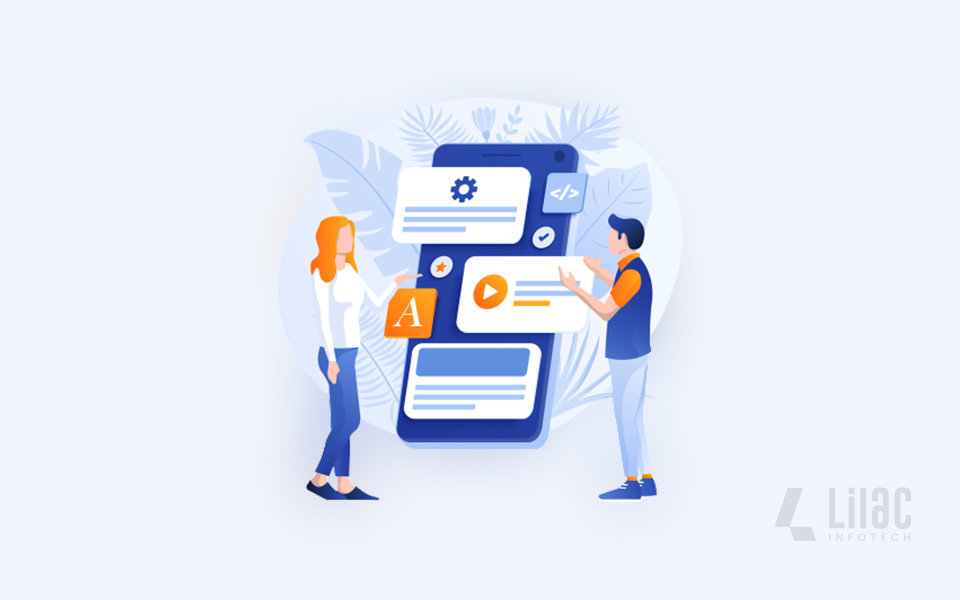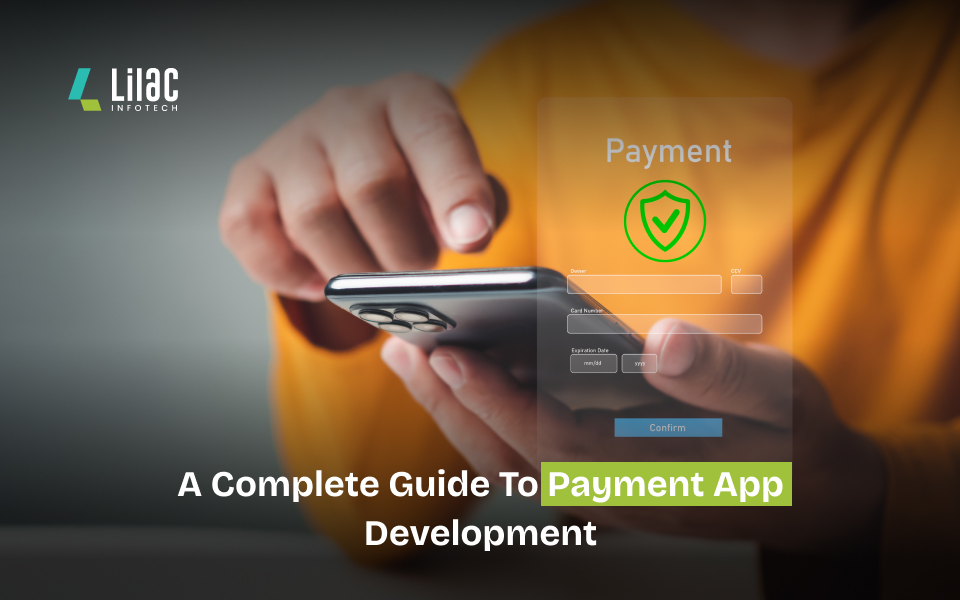
The Internet of Things (IoT) has opened up a world of possibilities for businesses looking to leverage the power of connected devices to streamline operations, enhance customer experiences, and drive growth. One area where IoT has shown particular promise is in mobile app development, where integrating IoT sensors and devices can create unique opportunities for businesses looking to develop innovative new products and services. However, this integration also comes with several challenges that businesses and developers must be prepared to address if they want to realize the benefits of IoT and mobile app development fully.
Opportunities for IoT and Mobile App Development
Enhanced User Experience
One of the most significant opportunities presented by integrating IoT with mobile app development is the ability to create a more personalized and engaging user experience. By connecting mobile apps to IoT devices, businesses can provide users with real-time data and insights to better understand and interact with their environment. For example, a home security app could allow users to monitor and control their security system remotely. In contrast, a fitness app could track users' activity levels and provide personalized workout recommendations based on their goals.
Improved Operational Efficiency
Another key opportunity presented by IoT and mobile app development is the ability to optimize operations and improve efficiency. By deploying IoT sensors and devices throughout their operations, businesses can collect real-time data on everything from inventory levels to equipment performance, allowing them to make data-driven decisions and quickly identify and address issues as they arise. Mobile apps can then analyze this data and provide insights to help businesses optimize their processes and streamline operations.

New Revenue Streams
Integrating IoT with mobile app development can also create new revenue streams for businesses by allowing them to offer innovative new products and services that leverage the power of connected devices. For example, a smart home automation company could offer a subscription service that includes access to a mobile app that allows users to remotely control and monitor their home's lighting, temperature, and security systems. Similarly, a car manufacturer could develop a mobile app that allows drivers to monitor their vehicle's performance, receive maintenance alerts, and book service appointments directly from the app.
Real-time Monitoring
One of the biggest benefits of IoT and mobile app development is the ability to monitor processes and systems in real time. By deploying sensors and IoT devices, businesses can collect data on various aspects of their operations and use mobile apps to monitor this data anywhere in the world. Real-time monitoring allows businesses to detect issues and adjust quickly, leading to more efficient operations and improved outcomes.
Predictive Maintenance
IoT and mobile app development can also be used to implement predictive maintenance solutions. Businesses can identify patterns and anomalies that may indicate equipment failure or other issues by analysing data from sensors and IoT devices. Mobile apps can then alert maintenance teams and provide recommendations on addressing these issues before they become major problems, leading to less downtime and reduced maintenance costs.
Improved Customer Experiences
Mobile apps that are integrated with IoT devices can also be used to improve customer experiences. For example, smart home devices can be controlled through mobile apps, allowing customers to adjust settings, receive alerts, and monitor their homes from anywhere in the world. Similarly, IoT-enabled wearables can track health and fitness data, allowing customers to set goals and monitor their progress in real-time.
New Business Models
Integrating IoT with mobile app development can also enable new business models that were previously impossible. For example, businesses can develop subscription-based models that provide access to IoT devices and services through mobile apps. They can also leverage data collected from IoT devices to develop new revenue streams, such as offering data analytics services to other businesses.
Challenges of IoT and Mobile App Development
Security Risks
One of the biggest challenges of IoT and mobile app development is ensuring the security of both devices and data. IoT devices are vulnerable to various security threats, from hacking and malware attacks to physical tampering and theft. Similarly, mobile apps can collect and store sensitive user data, including personal information, location data, and other potentially valuable information. To address these risks, developers must implement robust security protocols and take steps to ensure the privacy and security of user data at all times.
Interoperability Issues
Another significant challenge in IoT and mobile app development presents the need to ensure interoperability between devices and platforms. With so many different devices and platforms on the market, it cannot be easy to ensure IoT sensors and devices can communicate and share data effectively. To address this challenge, developers must ensure that their solutions are designed to be compatible with a wide range of devices and platforms and must work closely with device manufacturers to ensure that their solutions can interface seamlessly with various devices.
Integration Complexity
Integrating IoT devices and sensors with mobile apps can be complex and time-consuming, requiring specialized hardware and firmware that must be integrated with mobile app development platforms. To address this challenge, developers must have a deep understanding of both hardware and software. They must work closely with device manufacturers and other technology partners to ensure their solutions are optimized for IoT devices and sensors integration.
Scalability
Another challenge presented by IoT and mobile app development is the need to ensure scalability. As businesses grow and their operations become more complex, they may need to deploy more IoT devices and sensors to collect data and optimize processes. This can significantly strain mobile app development platforms and may require businesses to invest in additional hardware and infrastructure to support their growing needs. Developers must be prepared to design scalable solutions that can handle increasing volumes of data and devices.
Data Management
Collecting and analyzing data from IoT devices and sensors can generate vast amounts, making data management a significant challenge for businesses. To address this challenge, developers must design solutions that can collect, store, and analyze data in an efficient, scalable, and secure way. They must also be able to identify key insights and trends from this data and provide actionable recommendations that can help businesses optimize their operations and drive growth.
Security
As with any digital technology, security is a major concern regarding IoT and mobile app development. IoT devices and sensors are often deployed in critical infrastructure and may collect sensitive data, making them a prime target for cyberattacks. Mobile apps that interact with IoT devices must also be designed with security, as they may be used to access sensitive information or control critical systems.
Developers must implement security measures that protect IoT devices and mobile apps from cyber threats. This may include using strong authentication protocols, encryption, and secure communication channels to protect data from unauthorized access. Additionally, developers must ensure that their solutions are updated regularly to address new security threats as they arise.
Integration with Legacy Systems
Many businesses still need to rely on legacy systems and technologies to run their operations, which can pose a challenge when integrating IoT devices and mobile apps. Developers must be able to design solutions that seamlessly integrate with existing legacy systems and technologies while also taking advantage of the opportunities presented by IoT and mobile app development.
This requires a deep understanding of the existing systems and the ability to identify potential areas of integration. Developers must also be able to design solutions that can work with legacy systems' limitations while still providing the benefits of IoT and mobile app development.
Cost
Implementing IoT and mobile app development solutions can be costly, especially for smaller businesses needing more resources to invest in new technology. Developing custom IoT devices and mobile apps can require significant investments in hardware, software, and infrastructure and may require businesses to hire specialized developers with experience in these areas.
To address this challenge, businesses must consider the potential ROI of implementing IoT and mobile app development solutions. They must also explore alternative options, such as using off-the-shelf IoT devices and mobile apps or partnering with cost-effective technology providers.
Hire our expert mobile app developers to build powerful prospective app for your business!
Conclusion
Integrating IoT with mobile app development has created new business opportunities to enhance operations, improve user experiences, and drive growth. However, it also comes with unique challenges that must be carefully considered and addressed. By designing solutions that address these challenges and leveraging the opportunities presented by IoT and mobile app development, businesses can stay ahead of the curve and succeed in today's fast-paced and constantly evolving digital marketplace. With the right approach and technology partners, businesses can unlock the full potential of these technologies and drive growth in today's digital age.
Post a Comment
Recent Comments
The blog "IoT and Mobile App Development: Opportunities and Challenges" effectively explores the transformative potential of integrating IoT devices with mobile apps. It highlights the opportunities for enhanced connectivity, real-time data monitoring, and improved user experiences across diverse industries. However, it also acknowledges the critical challenges such as security vulnerabilities, interoperability issues, and the need for agile development strategies to navigate the complexities of this evolving landscape. Overall, the blog provides a balanced perspective on the dynamic intersection of IoT and mobile app development, emphasizing both the promise and the complexities inherent in leveraging these technologies effectively.https://www.sparkouttech.com/mobile-app-development-agency-austin/
Thanks for sharing this insightful blog.Shiv Technolabs is also the best IoT app development company. Visit our website at: https://shivlab.com/iot-app-development-services/
Development new app what about this app



















This article provides an insightful look at the opportunities and challenges in IoT and mobile app development. The discussion on practical use cases and implementation considerations really helps highlight the value of IoT app development. I also found this article on IoT mobile apps and connected ecosystems very informative, as it shows how mobile integration can enhance the efficiency and functionality of IoT systems: https://mobisoftinfotech.com/resources/blog/iot/how-iot-mobile-apps-transform-connected-ecosystem. Content like this makes it easier to understand the evolving role of IoT app development in modern technology strategies.